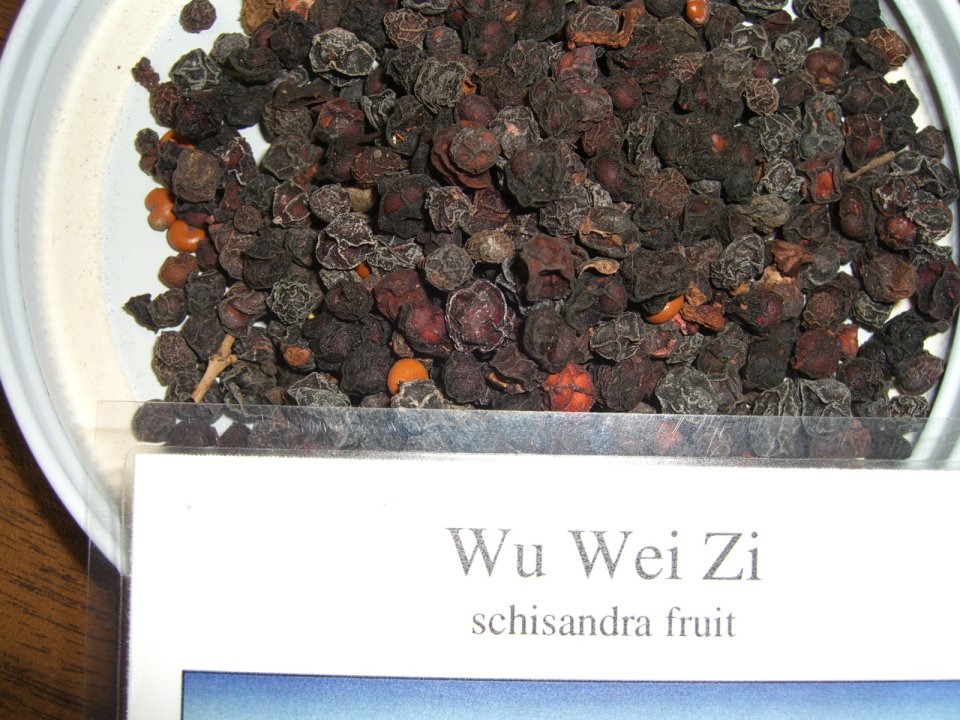Wu Wei Zi

  | Wu Wei Zi in TCM:Explore the properties of Wu Wei Zi according to Chinese
Nutrition and Traditional Chinese Medicine (TCM):
Factoids:
English Name: schisandra, Chinese magnolia vine fruit, orange magnolia vine fruit
Pharmacuetical Name: Fructus Schisandrae Chinensis
Properties: sour, warm
Temperature: warm
Channels: LU, HT, KD
Flavors: sour
Special Properties:
resolves dryness
Actions / Indications:
- Contains leakage of LU qi; stops cough (chronic cough
and wheeze due to LU deficiency or LU and KD deficiency)
- Tonifies KD; binds Kidney essence; stops diarrhea
(spermatorrhea, vaginal discharge, nocturnal emission; urinary frequency
due to KD deficiency; cock's crow diarrhea due to SP and KD deficiency)
- Inhibits sweating; generates fluids (excessive sweating
especially with dry throat and thirst; qi collapse, spontaneous sweating;
night sweating; xiao ke)
- Quiets spirit; calms HT (anxiety, blood and yin deficiency
of HT and KD; irritability, palpitations, dreams disturbed sleep; insomnia)
- (cc: when exterior condition is not resolved)
- (cc: early stage of coughs or rashes)
- (cc: heat excess from interior)
Special Notes:
- Wu Wei Zi and Wu Bei Zi both astringe
the sweat, urine, and stop diarrhea but Wu Bei Zi is more for heat deficiency
while Wu Wei Zi tonifies KD, generates body fluids, nourishes HT, and
calms shen.
- Modern day use for improving LV function in hepatitis patients;
lowers LV enzymes; also used to treat allergice skin disorders
Disclaimer: In accordance with our terms of service, by using this web site you agree that none of the information found on this web site constitutes medical advice. You should always consult your doctor before trying any particular food or herbal remedy to treat disease.
Folk remedies presented on this site are designed to address specifc TCM diagnoses, and are not one-size-fits-all. If you would like to learn more about Traditional Chinese Medicine (TCM) and how it relates to Chinese Nutrition, you can book in a free call with a licensed professional. There is no obligation to purchase.
[CLICK HERE for your free INITIAL CONSULTATION] |

